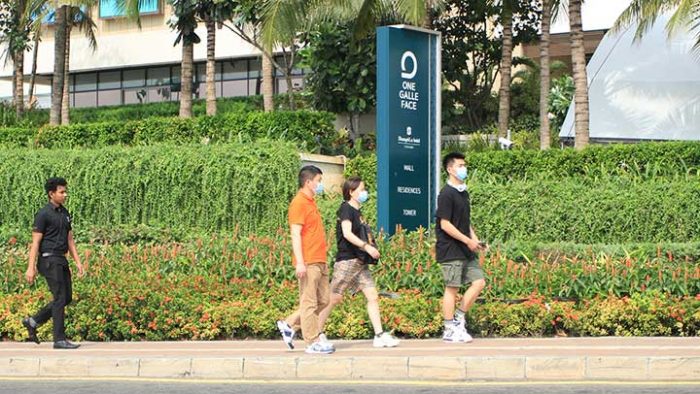Sri Lanka’s industrial and service sectors grew at a slower pace in January from December on the coronavirus outbreak in China, the central bank said in the Purchasing Managers’ Index (PMI) report.
The manufacturing sector PMI fell 0.3 index points to 54 in January from a month earlier. An index value of over 50 indicates a growth.
The central bank said purchasing of raw materials for the textile and apparel industry slowed down in January due to the Chinese New Year, and suppliers’ delivery time has lengthened due to to coronavirus outbreak.
“Many respondends in this sector highlighted that their import orders for materials from China have been delayed indefinitely due to the same reason.”
Employment in manufacturing fell as people searched for better paying jobs, the central bank said.
New orders and production was rising, but at a slower rate than in December.
Although the apparel industry is expecting disruption due to the coronavirus outbreak, expectations for other manufacturing activities for the next three months is slightly higher compared to December, the central bank said.
Globally, the manufacturing PMI grew 0.3 percent to 50.4 percent, with expansions in Inia, UK, Eurozone, Singapore and Russia, while in the US and China a slowdown was seen.
Sri Lanka’s services sector PMI fell 3.2 points to 57 in January from December, showing a growth but at a slower pace.
The business activity sub-index fell to 61.4 from 67.4 in December when the sector reached a seasonal high. See Also
Sri Lanka’s Watawala Plantations profits down in Dec on flat revenue
Sri Lanka legislator calls on “patriots” to boycott the US until Shavendra ban is lifted
Paypal gap holds back Sri Lanka’s online fashion aspirations
Computer literacy in Sri Lanka grows in 1H19
Sri Lanka’s PickMe started surge pricing to bridge supply gap: official
Accommodation, food and beverage as well as telecommunication industries grew due to the peak tourism season as well as tax breaks, the central bank said.
Employment in the services sector grew after a nine month fall, as businesses hired for a fresh year, which also led to a fall in backlogs of work.
Sri Lanka’s economy had reeled in 2019 following a balance of payments crisis in 2018 and the Easter Sunday bombings last April, which especially hit the tourism industry, even resulting in a contraction of the hospitality workforce.
Meanwhile, expectation of new activity in the accommodation, food and beverage and transport sub-sectors fell in January due to the impact of the coronavirus, as tourist arrivals would decline from China, the central bank said.

